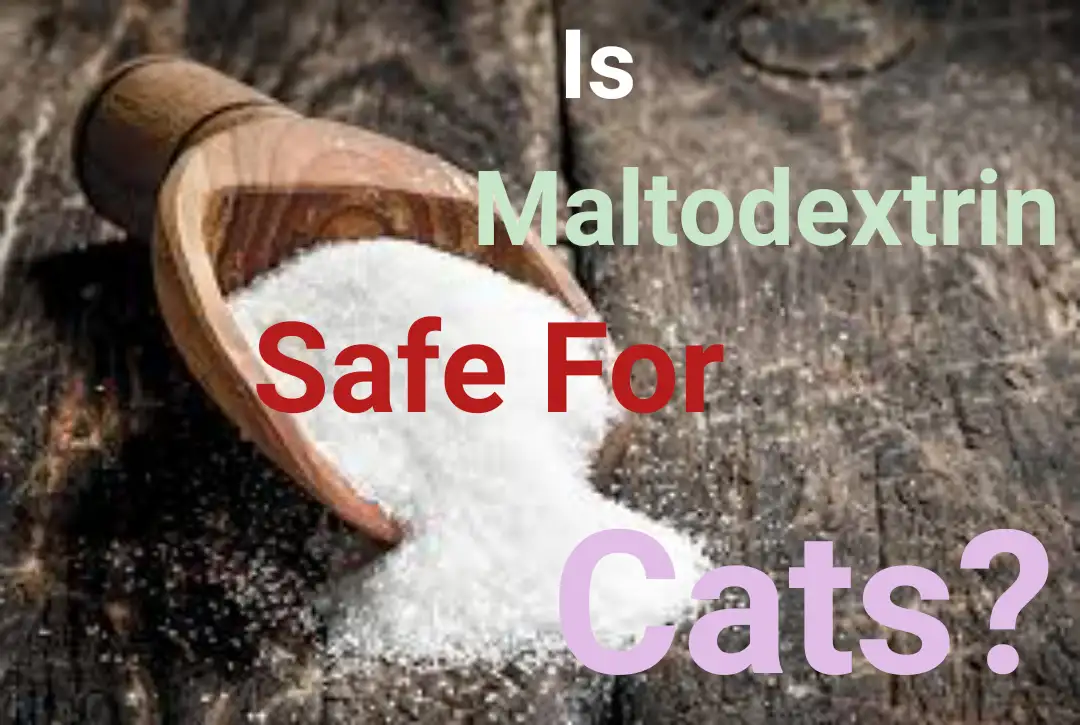Is Maltodextrin Safe For Cats? Can Cats Have Maltodextrin?

In 2017, AAFCO granted approval for the use of maltodextrin in pet foods. The FDA categorizes it as a nutritional food additive that is generally recognized as safe (GRAS). However, the question remains: Is maltodextrin safe for cats?
Maltodextrin in small quantities is safe for cats and can be found in almost all cat foods and supplements as It helps to extend shelf life and thicken the foods, but In large quantities, maltodextrin could pose a lot of health risks.
Table of Contents
- What is maltodextrin, and what are its uses?
- Is maltodextrin safe for cats?
- Can cats have maltodextrin?
- Is Maltodextrin Toxic To Cats?
What is maltodextrin, and what are its uses?
Maltodextrin is a type of sugar compound that is partially broken down (hydrolyzed) and derived from various starches. Common sources of starch include corn, oats, rice, potatoes, and tapioca. Interestingly, unlike other artificial sweeteners, maltodextrin does not always have a sweet taste. It can sometimes be tasteless.
Maltodextrins are classified based on their dextrose equivalent (DE) value. The DE value indicates the amount of reducing sugars present in a sugar product. Higher DE values correspond to sweeter products. Maltodextrins typically have a DE value ranging from 3 to 20. According to the European Union’s definition, products with a DE value exceeding 20 are considered glucose syrup. Dextrins, on the other hand, are categorized as having DE values of 10 or below.
The food industry for humans has been incorporating maltodextrin into processed foods for over three decades, and this practice has also extended to pet products. Maltodextrin is frequently utilized as a thickening agent and to bind ingredients together. It’s comparable to the stickiness of syrup, so its application is understandable. Additionally, certain companies employ maltodextrin to modify the freezing points or textures of their products, often substituting fats as a source of food energy.
Maltodextrin is used in
- Rehydration drinks
- Frozen dairy products
- Salad dressings
- Health supplements for pets and people
- Gravies
- Pet foods and treats
Check out our article that explores how to resolve motion fever in cats: Can Gravol kill cats?
Is maltodextrin safe for cats?
Yes! When included in small amounts in their food, maltodextrin is usually not problematic for most cats. However, it doesn’t provide any significant nutritional value either.
Cats’ bodies are not built to handle large quantities of carbohydrates, such as maltodextrin, very well. Maltodextrin has a high glycemic index, meaning that consuming a lot of it can cause dangerous spikes in blood sugar levels, obesity, diabetes, or gastrointestinal problems, and lead to fat storage in cats.
Some cats may have allergies or sensitivities to maltodextrin derived from grains like corn or wheat. It’s better to look for maltodextrin sourced from potato or tapioca starch instead. Make sure that any cat food containing maltodextrin is specifically formulated with appropriate levels of protein, fat, vitamins, and other essential nutrients.
Can cats have maltodextrin?
Getting cats to exercise can be a daunting task, but for those of us that are lucky to have cats that enjoy exercise routines, Maltodextrin helps cats recover from arduous exercises quickly, but it’s still necessary to take care when feeding cats before or after exercise as it could result in bloating.
Cats can safely have maltodextrin, as it is responsible for the energy boost your cat derives from most of its wet or dry kibbles, and it is usually present in small or safe amounts. If you’re uncomfortable, you could opt for premium cat foods that don’t include maltodextrin or that severely limit the amount used.
Is Maltodextrin Toxic To Cats?
Maltodextrin isn’t toxic to cats, and while it doesn’t necessarily provide your cat with an essential nutrient, it is an FDA-safe method of energizing your cat’s food. It is safe in small amounts but could cause health issues if consumed in large quantities.
It is practically impossible to find any cat food or supplements that lack Maltodextrin, and there is nothing to fear about this except if your cat is allergic to it, in which case you could consider feeding safer alternatives with the guidance of your vet.



